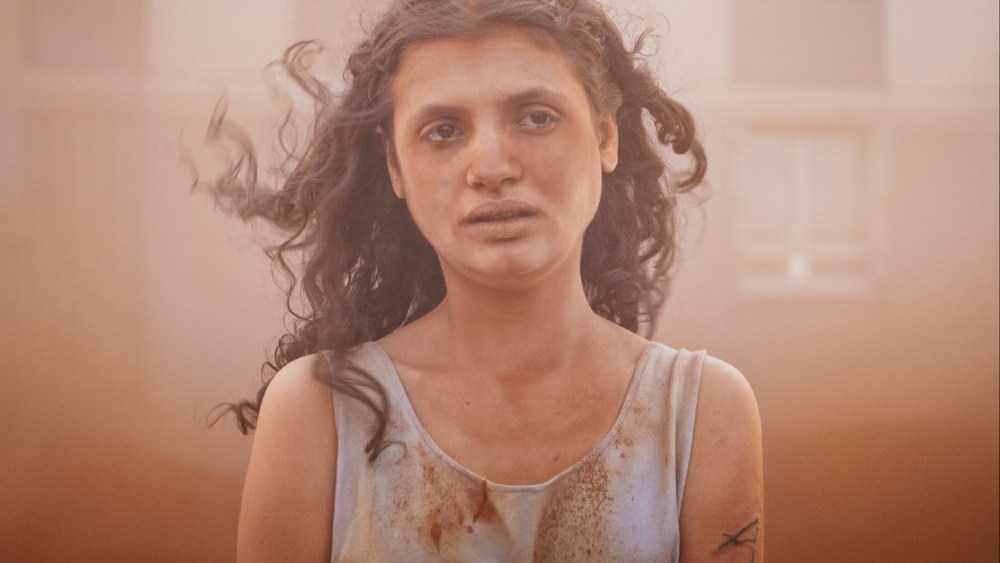Cannes Films Showcase Maturity of French VFX Sector
France’s VFX industry has grown rapidly, initially driven by a 2020 tax measure that allowed qualifying international productions to claim a full 40% rebate on digital expenses. This incentive revitalized the post-production sector, attracting major projects that, in turn, spurred further development.
Subsequent public initiatives have only accelerated this virtuous cycle, as the government’s France 2030 investment plan looks to widen a talent pool that now boasts 4,500 professionals while the country’s national film board, CNC, has rolled out a series of VFX bonuses and incentives for local productions as well.
“We’ve seen a dramatic rise in local VFX spending over the past two to three years, helping to grow the sector despite a general international slowdown,” says CNC director of digital Pauline Augrain. “French productions have really embraced VFX — both artistically and industrially. From that perspective, we’ve clearly reached a new level of maturity.”
This new creative maturity will be on full display on the Croisette. Several French titles premiering in Cannes — among them Julia Ducournau’s genre drama “Alpha,” Richard Linklater’s Godard tribute “Nouvelle Vague,” and the historical epics “Colors of Time” by Cédric Klapisch and “The Great Arch” by Stéphane Demoustier — all thoughtfully deployed digital tools, often to eager industry encouragement.
“Since the birth of cinema, creation and technique have always gone hand in hand,” says France 2030 project manager Arnaud Roland. “That’s why we’re actively promoting VFX as a core part of the creative process — not an afterthought in post-production, but as a creative asset embedded in an artistic vision.”
French studio CGEV boarded “Nouvelle Vague” early on, as supervisors worked through a trove of digital models and archival materials to help director Richard Linklater rigorously and painstakingly recreate the 1950s Paris that Jean-Luc Godard so spontaneously captured in “Breathless.”
“These days, anything set before 2000 counts as a period film,” says CGEV director Alain Carsoux. “And in this case, we knew early on that recreating Paris from that era would be a major undertaking — a Paris of cobblestones, old shopfronts, and vintage cars that, in some parts, barely resembles the city as it is today. So, from the outset, the work was quite complex.”
Triangulating between Godard’s film, Linklater’s script and Paris’ new face, the CGEV team did extensive location scouting, often looking for stand-ins for locales that had radically changed, before sending each model through a digital time machine back to 1959. And with 300 shots to complete, the studio was grateful for the head-start.
“Getting involved early is crucial,” Carsoux says. “That way, we can bring our expertise from the script stage, through prep and production. We can even begin building assets during the shoot to stay ahead, so that by the time the edit is locked, we already have a foundation. That was the case with ‘Nouvelle Vague,’ and it made a huge difference.”
“Our artists and supervisors aren’t just service providers,” Mathematic Film’s Sebastián Eyherabide adds. “They’re creative partners who want to be involved as early as possible, contributing ideas and pushing visual boundaries. That creative ambition has driven our expansion.”
Indeed, after building a strong reputation in advertising and music videos, Paris-based Mathematic expanded into film and television as opportunities in the sector grew. With additional studios in Montreal and Los Angeles, the company has since contributed to several high-profile projects from its Paris headquarters.
Mathematic artists composited 300 shots for Wes Anderson’s “Asteroid City,” contributing to the film’s distinctive visual style, and they also played a key role in the seamless makeup transitions in Darren Aronofsky’s “The Whale.” That the makeup work would end up winning the Oscar is a particular point of pride.
After subsequent credits on Apple TV+ series “Constellation,” “The New Look” and “Disclaimer,” and with France 2030 support, Mathematic recently opened a new outpost in Montpellier, connecting the growing studio with recent graduates from the country’s top-ranked VFX schools.
“France benefits from a deeply rooted artistic culture,” executive producer Olivia McClean says. “I’ve worked in studios in the U.S. and U.K., but France felt different. There’s a more collaborative, organic way of working across departments. Nothing feels assembly-line. Even the smallest shots get real care.”


